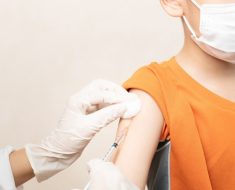A new study by experts at the University of Nottingham and CARE Fertility is to explore the role of the stress hormone ‘cortisol’ on pregnancy in women undergoing IVF treatment.
The research follows an earlier study which suggested that elevated long-term levels of cortisol may reduce the likelihood of a successful outcome for patients trying to conceive by IVF. Cortisol is a glucocorticoid steroid hormone that plays a range of important roles in the body including regulating reproductive function.
Two hundred patients undergoing IVF treatment at CARE Nottingham are now being given the opportunity to take part in the study. The researchers are seeking to replicate the findings of their first study, which was conducted with 88 women. They also want to understand which lifestyle factors have the largest effects on cortisol so that they can help women to change their cortisol levels, through changes in lifestyle, and in so doing hopefully increase their chances of becoming pregnant.
Professor of Health Psychology at the University of Nottingham, Kavita Vedhara, said: “There has been a long-standing interest in the role of cortisol on fertility outcomes. Much of this interest stems from the fact that we know that cortisol is typically elevated in relation to stress; and stress is often believed to influence fertility. However, many factors influence cortisol (including physical activity, sleep and some aspects of our diet such as caffeine) and so it is possible that any or all of these factors may account for the effects of cortisol on pregnancy.”
Professor Simon Fishel, Founder, President and Head of R&D CARE Fertility, said: “We are delighted to be working with the team at the University of Nottingham on this important study. Their previous research has demonstrated that simple testing of cortisol in hair may reveal a particular hormone state of the female before embarking on IVF that may affect treatment outcome. If this is proven with further solid research it may modify our approach to pre-IVF testing in all patients. We constantly strive to achieve the best chance of success for our patients and we are very grateful for the support they have given to this study. Without them and the engaged team of scientists we would never make progress.”
The study involves collecting lifestyle information from patients prior to treatment and taking a small hair sample from the head. The hair sample will allow the researchers to measure levels of cortisol in the 3 months before starting IVF.
Dr. Adam Massey from the University of Nottingham added: “Now that it is possible to measure cortisol in hair, we can assess long term levels of the hormone by taking one quick and painless sample without having to burden patients with several more invasive tests.”
Source: Read Full Article





